On the day of his 80th birthday, Tony Persoglia looks at the illustrious career of Frank Micic, one of Victoria’s greatest ever players and a true legend of the game.
When Frank Micic arrived in Melbourne in 1959, few would have predicted the impact he would have on Australian football. Having played his junior football in Yugoslavia until the age of 17, his family set sail for a new life in the United States, but a stopover would see Micic spend eighteen months playing local league football in Italy, before a snap decision to board a ship to Melbourne brought him half way across the world.
It was a chance meeting with three young Yugoslavs on that voyage which convinced him to seek out J.U.S.T upon his arrival. The Yugoslav backed club had brought the players to Australia, offering a chance to establish themselves with one of Victoria’s most successful new clubs. By the following year, it was Micic who had cemented himself in the first team, a position he would occupy for the best part of two decades and over five hundred matches.
Micic was emblematic of many of the migrants who arrived in Australia during the post-war period. In search of a new life away from the poverty which had struck much of Europe in the ensuing decade, they arrived in droves, many setting off to work the very next day as they helped establish some semblance of home in a nation that was vastly different to the Europe they had known. Football provided an outlet for social connection, and the very best players would soon become household names in their respective communities.
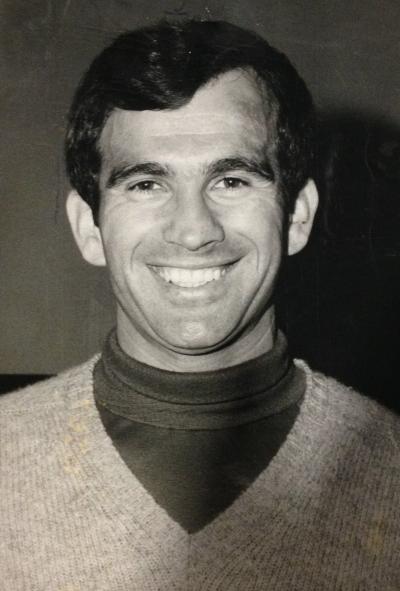
After impressing in a couple of appearances in the J.U.S.T. Reserves, Micic made his senior debut against fierce rival, Juventus. Both clubs had won the last seven league titles, Juventus’ remarkable dynasty broken by J.U.S.T in 1957, their first breakthrough in the First Division after barely eight years in existence. Juventus would win the encounter 4-1 and Micic would soon cool his jets in the Reserves for the remainder of the league season as he quickly adjusted to the physicality of Australian football.
But it wouldn’t take long before he would make his impact. With the league concluded, attention turned to the Dockerty Cup where Micic scored his first senior goal for the club, against Juventus in a drawn quarter-final. J.U.S.T would ultimately lose in a semi-final replay against eventual champions George Cross, but Micic had impressed onlookers with his skill and close ball control. By the start of the 1960 season and with a new decade beckoning, Micic was an ever-present on the wing in the J.U.S.T senior team.
As his reputation grew with each match and J.U.S.T would assemble a squad alongside Micic which would be the envy of the league for the best part of the next decade and beyond. Imports such as Cec Dixon, Enio Marinovic, Vero Mladenovic, Mirko Pejovic, Rale Rasic, Milenko Rusmir, Billy Rice, and Tommy Stankovic, many of whom would represent Victoria and Australia, would form the backbone of a team which would challenge for greater honours.
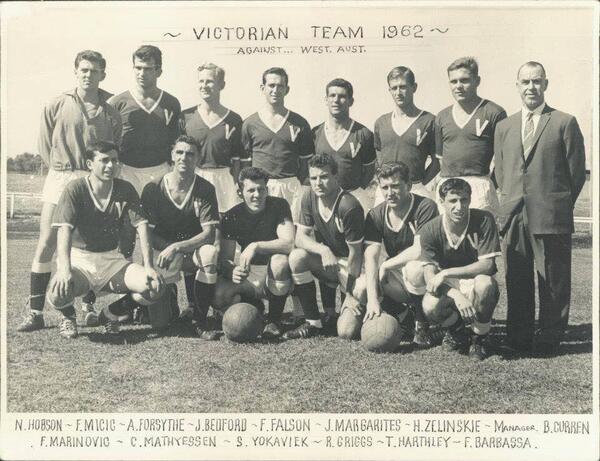
1963 would prove the year that J.U.S.T. would take all before them. A hotly contested State League season with Polonia would come down to the final three rounds. A 7-0 away win to U.S.C. Lions followed by a 5-0 home demolition of Alemannia-Richmond gave J.U.S.T the breathing space it needed in goal difference, and a resounding 2-0 victory away to George Cross clinched the championship. Having negotiated the preliminary round and group stage of the Dockerty Cup, Micic would prove pivotal in the semi-final, claiming the only goal in a hotly contested encounter with Slavia. Micic himself claims the 4-2 final win against Polonia as the “greatest club match ever played in Victoria”, having just sealed the League-Cup double, there may be a rose-coloured tinge to that claim.
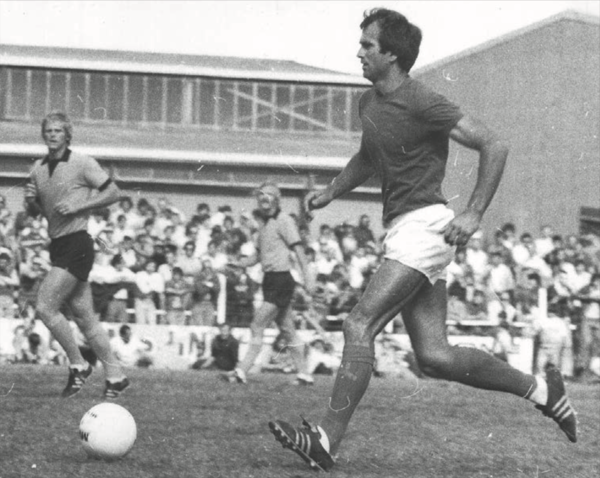
Few could doubt how important a cog Micic had become in the J.U.S.T. juggernaut. State selectors had also taken notice. He made his debut for Victoria against Queensland in 1961, playing as a stopper as opposed to his usual wing half position at club level. Once Australia’s FIFA ban was lifted in 1964, international touring teams returned to Melbourne, and Micic, now at his peak and playing in his more familiar position, impressed against many of Europe’s finest club sides, including wins against FC Basel and Preussen Munster, and in a 3-1 defeat to Everton in front of almost 30,000 fans at Olympic Park. It was against the Toffees that Micic would make his debut for Australia in Sydney.
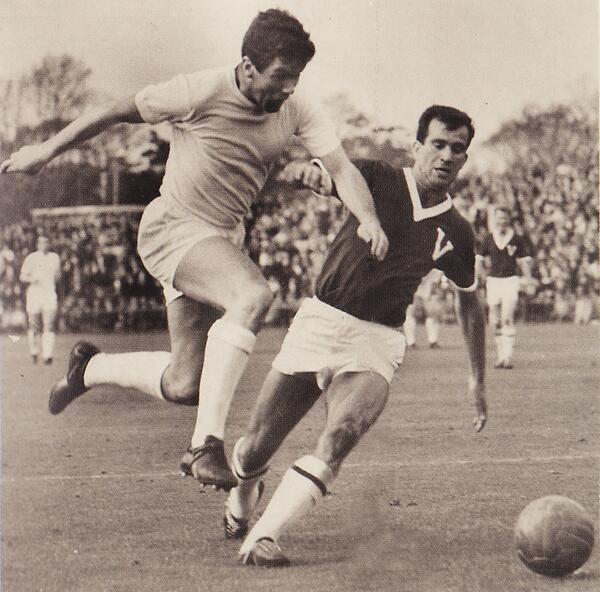
J.U.S.T would finish a point behind South Melbourne-Hellas in the State League that year and would fall agonisingly short against Slavia in the final of the Dockerty Cup, but Micic, having played 38 competitive matches for club, state and country, capped off a remarkable individual season by claiming the Argus Medal. He would repeat that feat in 1967, a year that would see him finally break into Australian team calculations.
By then, Micic was match-hardened, with eight full seasons and almost 300 club matches under his belt, he was an ever-present for Victoria regardless of the opposition. Micic memorably scored the second goal which put Victoria 2-1 up against the touring AS Roma in 1966, a match played in front of a record Olympic Park crowd of 35,856. He was captain in arguably Victoria’s greatest ever result against European opposition, a 1-1 draw to Manchester United in 1967 and by season’s end, was called up to the Australia squad which embarked on a tour of South East Asia.
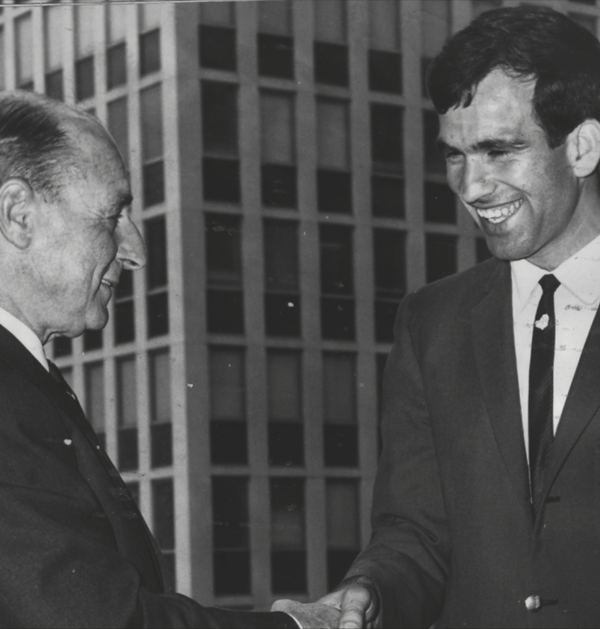
Australia claimed its first piece of international silverware in the South Vietnam Independence Cup, and despite five appearances and a goal on tour, Micic would struggle to cement his place in national calculations. Upon his return to Melbourne, he would transfer to South Melbourne-Hellas and despite an impressive season, the call to return to a struggling J.U.S.T, who had avoided relegation by goal difference alone, was too difficult to ignore. Now coached by compatriot Rale Rasic, the club would once again claim the league championship on the final day in 1969, a solitary point ahead of Juventus and Ringwood City Wilhelmina.
By the time the 1970 season was complete, Micic had turned 30, but there was no slowing down for the evergreen talisman. He guided J.U.S.T to another title in 1971 as they held out a fast finishing South Melbourne-Hellas, again by a solitary point. By now, the club had gained the services of Jim Milisavljevic, Branko Buljevic and Dan Zoraja, and were unlucky not to claim the League-Cup double, falling at the final hurdle to Juventus.
1973 would provide a pulsating, if not unique, finish to the State League season. In the penultimate round, George Cross scored an impressive win at Schintler Reserve to open up a game-and-a-half lead at the top of the table over J.U.S.T who had two games in hand. George Cross crushed relegation-bound Box Hill 7-0 in the final round as Micic scored a decisive J.U.S.T penalty in a 2-1 away victory to Keilor Austria and after a single goal gave them all points against a gallant Juventus, J.U.S.T headed to Olympic Park the following Wednesday evening needing a single point against Melbourne Hungaria to claim their fifth championship. It was Micic who calmed the nerves of the J.U.S.T faithful, the captain stepping up to slot away a first-half penalty and help guide his club to a 2-1 win. Micic claimed his third Bill Fleming Medal (formerly the Argus Medal) to round out another stellar campaign just shy of his 33rd birthday.
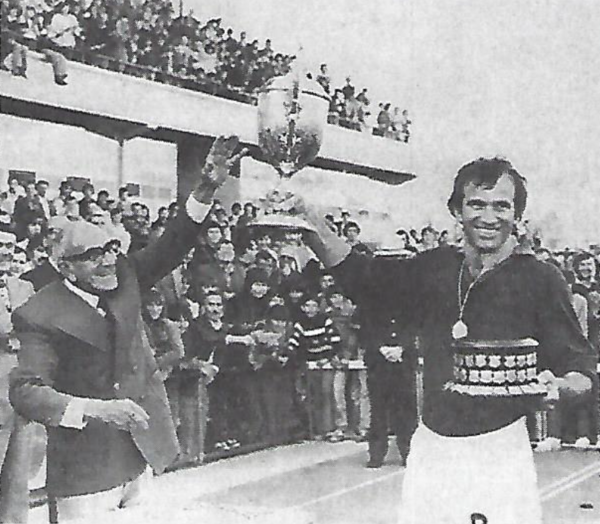
While many may have considered retirement, there was still more in the Micic tank and a host of silverware to be won, with 1976 bringing another Dockerty Cup win over Polonia in the final, and a hat-trick of successive State League Cups. With the National Soccer League looming and still going strong at 36, Micic would play for his beloved Footscray J.U.S.T for one final season, this time at national level. His 20 appearances that season footnoted a remarkable career in club football, where estimates suggest he played almost 600 matches across league and cup competitions, not to mention almost 70 matches for his adopted state in Victoria and nation in Australia.
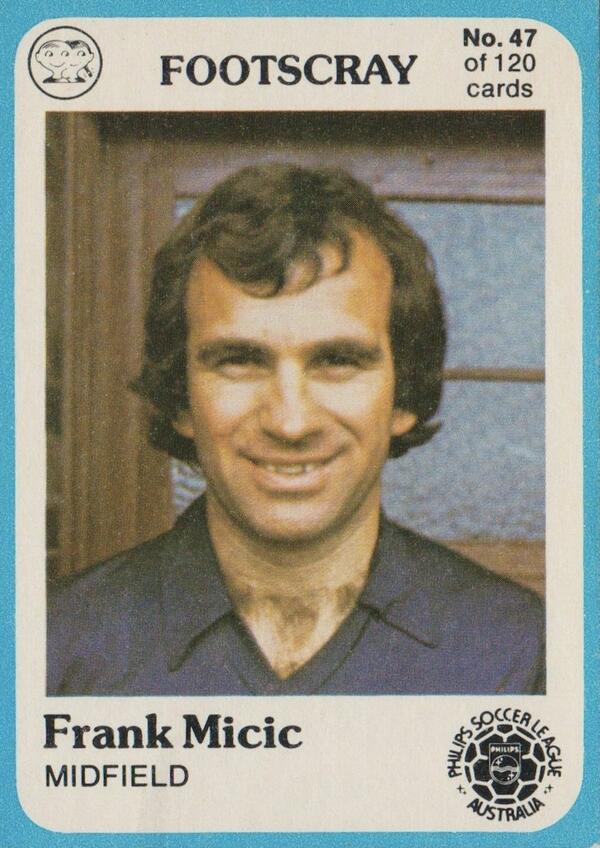
As wonderfully skilled and elegant on the ball that Micic was, he was also regarded as a gentleman on the field. Sent off just twice in his career, his second offence was rescinded by the Victorian Soccer Federation disciplinary tribunal given his exemplary playing record. Micic turned to coaching in 1978, taking the helm at St Kilda Hakoah midway through the season and managing three playing appearances off the bench. Fittingly, his last match as a player came as a substitute against Juventus, the club he made his debut against some twenty years earlier. By June, he was sacked as coach for being too harsh with his players. Clearly, the discipline with which he played was exemplified in his brief coaching stint.
Half a lifetime has passed since Frank Micic last pulled on the boots, but one would think his trademark elegance as a footballer would still be on show if given the chance. Today he celebrates his 80th birthday in Sydney, where he moved earlier this year to be closer with his family and grandchildren. He remains fit and agile and loves talking about the old days. There is many a story that could be told by Frank Micic, an ornament to the game and Victorian football.
Tony Persoglia was recently appointed as Football Victoria’s History and Heritage Coordinator, and among many things, is compiling an official list of caps and goals for every male and female that has represented Victoria at an open age level. If you can assist Football Victoria in uncovering its unique and rich past, or have any inquiries regarding the history and heritage of our great game, you can contact Tony at Tony.Persoglia@footballvictoria.com.au.
